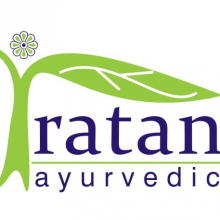Indore-based Ayurvedic company’s 25 year legacy of providing wellness solutions
SME Inspirations
430 week ago — 9 min read
With the rise in lifestyle diseases and a surfeit of harmful chemical-based products in the market, people are increasingly turning to Ayurveda as a panacea. Ayurveda is the age old Indian tradition that draws on millennia of learning and experience for its practitioners. It is meant to be a way of healthy living and not just a simple consumption of remedies when illness sets in. Ratan Ayurvedic Sansthan, a family business running for over 25 years from Indore, flies the banner of Ayurveda high. They draw on the rich tradition and create innovative products that have had an enduring impact for their consumer base. They firmly propound that Ayurveda is a way of life and their differentiated ethos is a fundamental reason for their staying power in a market dominated by giant players.
Today, Ratan Ayurvedic Sansthan, with Jinesh Shah as a second generation director, finds itself at a crucial phase. Expansion is key with the company looking to open a 100 service outlets by 2025. Despite these ambitious future plans, a strong family tradition of adhering to values still governs the company. Also, Jinesh is ensuring that innovation is at the heart of all that Ratan Ayurvedic does to this day. Jinesh believes innovation is what has brought the company so far and will be the main ingredient for any future success. It is both a legacy and a recipe for growth.
In conversation with GlobalLinker (GL) Jinesh Shah (JS) shares the journey of the company with his vision for the future. Watch this video for more on their journey.
GL: Tell us about your business.
JS: We make Ayurvedic medicines and herbal cosmetics. We have quite a few famous brands like Facia, Korra, Beuton, Vatliftar, Oberid etc. We are a 25-year-old company and my elders started with trading of pharmaceutical products for major OTC/FMCG companies. Then, they realised they had a ready network and could generate the technical expertise required to manufacture high quality products.
Ratan Ayurvedic has always relied on innovation. Our products are path-breaking and use combinations of ingredients that are little known. For example, with the Facia facial bar, the promise of the product is that you can get a facial done at home. Korra herbal shampoo is a hair colour with the benefit of a shampoo. You just have to shampoo to colour your hair.
This is a second-generation business. Beuton Kala Shampoo was one of our original products. I joined the business in 2008 after completing my masters from NMIMS in Mumbai where I specialised in Marketing. I brought forward the brands that were already on board and have taken some brands that were legacy brands and have molded them into something larger. Going forward we plan to open specialised retail stores with our products and other products in the Ayurvedic and herbal cosmetics field. We want to showcase products which would not otherwise get the same exposure as some of the larger MNC brands.
We still feel there is a lot of potential in these products. These products that come from traditional practices deserve to be shared with the world. Punjab & Haryana have been our biggest markets. This is because Beuton Kala Herbal Shampoo helps people with long hair and beards to colour their hair very easily. They don’t need to apply colour on their hair which is difficult. Now, given that Punjabi Sikhs are one of our biggest consumer groups we are targeting them with more products like a hair spray and a special hair oil. Uttar Pradesh and Bihar are also big markets for us. The Facia facial bar does very well there. It’s a Rs 2 facial at home. It’s a unique value proposition for consumers.
GL: What are the challenges you have faced in establishing your business?
JS: Though my elders were distributors, they had to face a lot of challenges when they were starting out on their own. Mechanisation and automation was an area the big companies had a significant advantage in. Also, there was a lot of competition in the beginning when they were just establishing themselves. The margins were small. With time, and greater technical expertise, they developed state-of-the-art facilities in Uttarakhand and Himachal Pradesh that can hold their own against the best that the big companies have. All of these were made brick by brick by my father and his brothers.
When I joined the business in 2008, I realized that everyone has complementary skills. This can be a challenge as well. I believed a lot in the theory I learned when I was fresh out of school. But my elders, who had a lot of experience did not take too kindly to my attempts to see things differently. I was inexperienced then. But with time, I have also gained experience and we have now found common ground where experience and new ideas meet.
The crux of values and innovation are still there in the family. The products we have are very different than the usual products that you see in the market today. Thus, I feel proud to carry on the legacy of the business with my elder brother.
GL: What is the USP of your business?
JS: Our USP is that we believe in innovation. Our products might seem like basic products but they all have at least one unique element to them. For example, Korra Hair Colouring Shampoo - apply the shampoo and colour your hair. We don’t need to spend much on advertising because we make our concepts unique. That is how we stand out from the competition. Today, we feel happy that Patanjali, Dabur and Emami are valued companies. It shows that the products we have been making for 25 years are valued and there is a market for age-old remedies packaged in modern form.
GL: What are some of the milestones of your business?
JS: One of the achievements from my father’s generation was that in 1998 they were the first in the country to produce cream hair colour. L’Oreal imported a cream which did that but ours was the only domestically produced equivalent. That was a significant technical feat.
After I joined this business I helped launch an algorithm that helped us stock 50% less products at our depots in 18 locations across the country. There was a rise in business by about 30%. We saved a lot as a result and that is a very big achievement.
GL: What role do you feel GlobalLinker plays in connecting and assisting SMEs?
JS: SMEs are one of the most neglected enterprises in the country. But they add significant value to the economy. In the personal care industry we can’t connect with our fellow businessmen and peers in our industry. The leaders in the industry are so huge. And the medium size companies are anywhere between 5 crore rupees to a 1000 crore rupees in terms of value. The spectrum is so wide. There is no one network to help these people come together.
GlobalLinker can bring all these different parties together. For example, if I am looking for a product that is manufactured in Bihar, I can sit where I am and connect with SMEs who are in the relevant industry who could provide me with vendors there.
GL: What is your big business dream?
JS: The vision of our business has always been holistic Ayurvedic healing. By 2025, we should have at least 100 service outlets. We believe that Ayurveda is not just a product, it’s a lifestyle. We want our consumers to adopt this lifestyle and live a healthy life.
GL: What is your message to aspiring entrepreneurs?
JS: My message to budding entrepreneurs is that there is no substitute for sweat. You have to work hard. You can’t assume things. You can’t presume things. Fearlessness is a quality you need in abundance. Jump out, reach out. Put your 100% behind it. Whatever you dream, you will achieve, but you need to persevere.
Albert Einstein once said “Try not to become a man of success, try to become a man of values."
Disclaimer: This article is based solely on the inputs shared by the featured member. GlobalLinker does not necessarily endorse the views, opinions & facts stated by the member.
Posted by
GlobalLinker StaffWe are a team of experienced industry professionals committed to sharing our knowledge and skills with small & medium enterprises.
Network with SMEs mentioned in this article
View GlobalLinker 's profile
Most read this week













Comments (1)
Share this content
Please login or Register to join the discussion